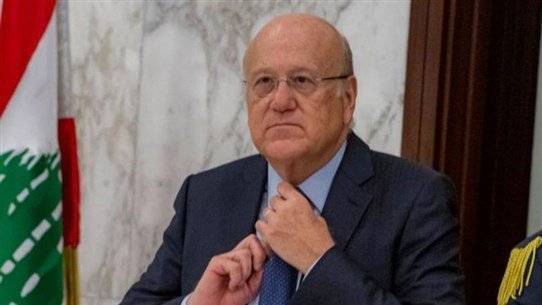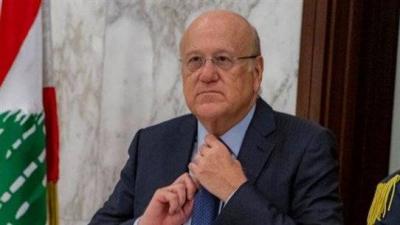As the Lebanese people grapple with the burning crises of daily life, from bread and fuel to healthcare and skyrocketing prices, the Baabda Presidential Palace has become the center of attention today due to the mandatory parliamentary consultations that President Michel Aoun will hold to name a designated Prime Minister. It has become clear that the parliamentary majority is fragmented and unable to agree on a candidate for these consultations, following the disbandment of opposition blocs and the inability to reach a consensus on Judge Nawaf Salam. Although caretaker Prime Minister Najib Mikati is the most prominent and likely candidate to be tasked with forming the government, Beirut MP Nabil Badri has announced that 13 MPs will name Mikati. However, even if the situation proceeds towards naming him, regardless of who the designated prime minister may be, a government will not form due to the presidential term wanting it to fit its own conditions and requirements. Thus, matters are headed towards paralysis, with everyone convinced that the caretaker government will assume the powers of the presidency, an issue that has become accepted due to the difficulties preventing the election of a new president.
For the third consecutive time, the parliamentary majority has shown a significant inability to reach a candidate for the premiership, which is urgently needed to reflect their desire for the change demanded by the Lebanese people at the polls. This raises doubts about the opposition's ability to carry out the program they promised the Lebanese, thus allowing the ruling system to continue controlling the country's decision-making, as there is no one capable of confronting it and preventing it from achieving its objectives. While the lack of agreement within the majority on candidate Salam has opened the door for Mikati’s advancement, it does not seem that "Hezbollah" has succeeded in softening the position of its ally "the Free Patriotic Movement" to proceed with Mikati, after MP Gebran Bassil, supported by President Michel Aoun, conditioned the approval of the caretaker prime minister's nomination on obtaining key ministries such as "Foreign Affairs," "Energy," and "Environment," among others.
In recent hours, there have been whispers of potential surprises at the last minute with the endorsement of a third figure, but without any certainty regarding this matter. This apparent confusion on the eve of the mandatory consultations will complicate the issue further and will undoubtedly hinder expectations that the designated president, whoever he may be, will successfully complete his mission in the remaining months of President Michel Aoun's term.
Opposition parliamentary sources are holding the majority responsible for failing to adopt a consensus candidate for the premiership, similar to their failure in the election of the vice presidency and parliamentary committees. This, they say, indicates that the majority does not learn from its mistakes and therefore bears responsibility for allowing Syria and Iran-aligned allies to control the country’s decisions. They called on this majority to change its stance and unite behind a single candidate to confront Mikati, in order to rescue the country from its predicament and maintain Lebanon's Arab position to assist in the rescue process.
The sources affirmed that "everything happening is linked to the presidential election," which has resulted in attempts at obstruction from the opposing faction, necessitating the opposition forces to unite to thwart this team's plans that wish for the appointment of a president from Iranian-affiliated groups. Hence, the majority must demonstrate that the period after May 15 will not be like before. This means that the sovereignty and reformist forces must succeed in bringing about a prime minister from their camp; otherwise, the situation will remain unchanged.
The sources considered that "the Gulf, especially Saudi, engagement with internal deadlines gives the impression that there is an interest in Lebanon’s situation. Saudi Arabia has always been concerned with Lebanon and has sought to build bridges between the Lebanese while standing by the state and its institutions in all crises. Therefore, the Saudi role is not new but rather a continuation of cooperation between the two countries, and it does not resemble the collaboration between Iran and the statelet in Lebanon."
It has been reported that there will be a wide range of consultations conducted by Saudi Ambassador Walid Bukhari with several Sunni political and spiritual leaders, aimed at unifying the Sunni community, in line with Saudi Arabia's commitment to Lebanon's stability, sovereignty, and independence. Meanwhile, the diplomatic activity of Gulf ambassadors alongside the movements of the Saudi ambassador appears to be a clear indication, according to Lebanese opposition sources, that "there will be Gulf support for the government and presidential elections in the upcoming phase."




